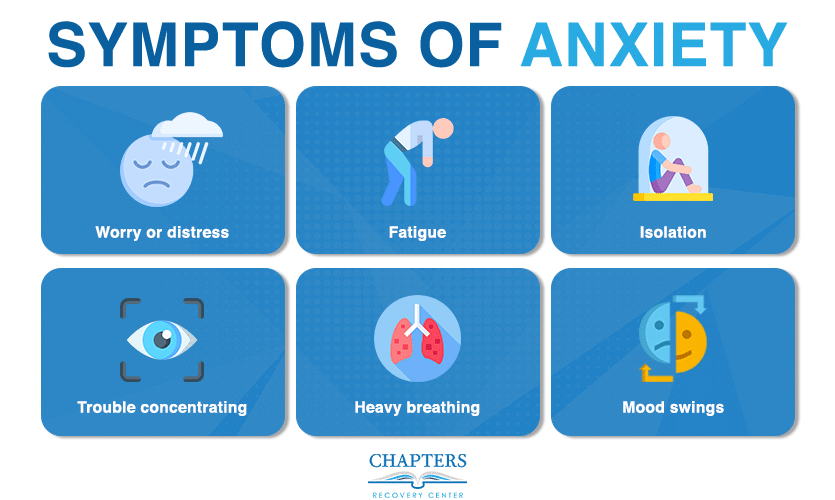April is named Alcohol Awareness Month to increase public awareness and understanding. Alcohol Awareness Month can also help by reducing stigma and encouraging local communities to focus on alcoholism and alcohol-related issues.
This April, a spotlight on alcohol abuse disorder can help increase education and provide support for everyone who struggles with alcohol abuse. At Chapters Recovery Center in Danvers, Massachusetts, we specialize in offering addiction treatment services for individuals and their families affected by substance abuse disorders.
Importance of Alcohol Awareness Month
Alcohol Awareness Month is important because alcohol abuse and addiction are prevalent issues in the United States. Alcohol-related issues affect hundreds of thousands of people every day and according to the National Insitute of Health, 29.5 million people 12 and older had Alcohol Abuse Disorder in 2021.
Since this is an issue that so many come into contact with, it’s important to raise awareness. When raising awareness, communities and organizations can share resources that save lives and help people cope with this disease. Like with any illness, it’s also important to show compassion and support to anyone who has an alcohol abuse disorder. This can help them find the strength to get help.
Why Do People Drink Alcohol and Become Addicted?
Several reasons lead people to drink alcohol and become addicted. People drink to socialize, relax, celebrate, or cope with stress. However, because alcohol can be addictive, repetitive use can cause an individual to develop a dependence. Due to genetic and environmental factors, people may be more at risk to develop alcohol dependence.
One reason people become addicted to alcohol is because of how it affects the brain. When people drink it increases the dopamine levels in the brain, acting as a reward system. The release of dopamine in the brain can lead to feelings of euphoria and relaxation. This good feeling becomes associated with drinking alcohol and may influence someone to continue alcohol use.
After prolonged use, alcohol can change the brain’s structure, basically making it very difficult for someone to control their impulses to drink. They may develop a tolerance to alcohol, which causes them to drink more to achieve the same effects.
Other factors that contribute to alcohol dependence include mental health conditions such as depression or anxiety, a history of trauma or abuse, and environmental factors such as peer pressure or a culture of normalizing heavy drinking.
What is an Alcohol Use Disorder (AUD)?
Alcohol Use Disorder(AUD) is a condition where an individual drinks an excessive amount of alcohol causing distress and physical as well as emotional harm. The Diagnostic and Statistical Manual of Mental Disorders (DSM) classifies AUD as a substance use disorder and defines it as any alcohol consumption that results in significant impairment or distress. This manual also outlines the criteria for this disorder. That criterion includes:
- Drinking alcohol in large amounts over a longer time than intended.
- Being unable to limit or stop drinking despite a desire to do so.
- Spending too much time drinking and recovering from its effects.
- Having a strong craving to drink.
- Failure to meet responsibilities at home, school, or work due to alcohol consumption.
- Continuing to drink despite the interpersonal problems that alcohol is causing.
- Reducing social, occupational, or recreational activities due to alcohol use.
- Drinking in situations where it’s hazardous to do so physically.
- Failure to stop drinking despite knowing it’s causing or worsening physical or psychological problems.
- Developing a tolerance and needing to drink considerably more alcohol to achieve the desired effect.
- Experiencing withdrawal symptoms when quitting or limiting alcohol use.
If you meet two or more of these criteria within 12 months, it’s important to seek help as you may have AUD. With even one of these symptoms, you may consider talking to a professional.
Signs and Symptoms of Alcohol Addiction
The signs of alcohol addiction can vary from person to person. Similarly, the symptoms you may experience when you develop an alcohol dependence may be different from how someone else experiences it. Here are common signs and symptoms:
- Drinking more alcohol than intended
- Failing to quit or reduce alcohol consumption
- Craving alcohol or having the urge to drink
- Continuing to drink despite negative consequences
- Developing a tolerance for alcohol and needing to drink more for it to have any effect
- Experiencing withdrawal
- Spending a large amount of time drinking alcohol and recovering from the use
- Getting blackout drunk repetitively
- Ignoring responsibilities due to drinking alcohol
- Drinking at inappropriate times
Those with an alcohol addiction continue to drink despite consequences ranging from headaches to loss of a job. If you notice any of these signs or symptoms in yourself or others, it’s helpful to intervene sooner than later.
Fast Facts About Alcohol
Here are facts about alcohol use in the United States:
- 140,000 people died from alcohol-related causes from 2015-2019.
- In suicide deaths, AUD is the second most common mental disorder involved, being present in 1 out of every 4 suicides.
- Out of 100,530 deaths as a result of liver disease in 2021, 47.4% involved alcohol.
- 4 million people were diagnosed with Alcohol Use Disorder in 2021.
- Alcohol use disorder affects more men than women.
- There were 2,100 alcohol-related deaths just in Massachusetts in 2020.
*All statistics gathers from the National Institute of Health and the Massachusetts Department of Public Health.*
What to Expect During Alcohol Awareness Month

During Alcohol Awareness Month, you can expect to see organizations and individuals organize events and activities to educate the public on the dangers of alcohol abuse and the importance of making the right choices when it comes to drinking. Dedicating a month to alcohol awareness allows organizations and individuals to call attention to this issue.
Here’s what you can expect to see during April:
- More media coverage: Typically the news and media publications cover stories, share documentaries, and make public service announcements relating to alcohol issues this month. They often share numbers for helplines and direct the public to resources that can help.
- Support group promoting their services: Alcohol addiction support groups, such as AA, may promote what they do especially during April. To take advantage of the attention alcohol-related issues get in the media, they can reach more people who need help.
- Community events and outreach: There may also be local events such as health fairs, workshops, and seminars to raise awareness of the effects of alcohol and how to prevent alcohol dependency. Community events also offer education on prevention, treatment, and recovery.
- Social media campaigns: You’ll likely see photos, videos, and posts on social media platforms that educate on alcohol-related problems and offer support to those who struggle with alcohol addiction. Social media users may use this awareness month to share personal stories and gather support for anyone affected by alcohol abuse.
- Companies sharing their support: Companies may show their support for this issue by posting on social media, organizing an event at work, or sponsoring an educational program with resources. Since alcohol abuse disorder is a condition that affects many, whether they use or know someone who does, companies can support their employees by raising awareness.
- Education programs sharing resources: Schools may have assemblies or make additional resources available during April, knowing that this is an issue that can affect teens and college students. Even if students don’t use alcohol, it’s important to learn the dangers of alcohol abuse and can help raise awareness.
Overall, Alcohol Awareness Month is a time to promote the safe use of alcohol and warn people of its danger. Many will show support and it’s a good time to learn of all the resources available to help you or a loved one with addiction.
Tips on How to Help Raise Awareness of Alcohol Addiction
This April is the perfect time for you to help raise awareness for alcohol addiction. You can do this through several simple actions, including:
- Volunteering with organizations: You can volunteer time with support groups or advocates for treating addiction. This helps organizations host events and dispute more information to the public.
- Sharing your own experiences with alcohol addiction: If you have experience with alcohol addiction or dealing with the addiction of a loved one, your story can help others. Sharing your story shows people that they’re not alone and it may give them hope for recovery.
- Organizing community events: You can organize workshops, seminars, or health fairs for your community where you share stories and resources where people can get help. These types of events can make a big impact on many age groups in your community.
- Partnering with local organizations: If you have a business or are a person with influence or experience, consider partnering with local organizations to host events in your area. Working with other organizations may allow you to have access to more resources such as time or money which ultimately benefits the public.
- Sharing information online: When you share information or repost information from reputable sources on social media you can help reach a wide audience. Getting information about preventing or treating alcohol use disorder in front of more eyes is very effective in raising awareness.
- Providing resources to the public: You can also create pamphlets, infographics, videos, and other types of media to distribute to the public and inform them about this issue. You can also give information and recommendations for places where people can receive help.
Getting Help For Alcohol Addiction at Chapters Recovery Center

At our Massachusetts drug rehab center, people will receive high-quality care tailored to their specific needs. This includes medication-assisted treatment (MAT), inpatient treatment, outpatient treatment, holistic treatment, an aftercare program, and sober living.
We also want to help you live a higher quality of life after detox or rehab. You and your family can take part in a variety of our therapy programs from individual to group and family therapy. This can provide techniques for rebuilding relationships as well as give family members education and tools to cope with the consequences addiction may have for them.
This Alcohol Awareness Month is the perfect time to reclaim your life from alcohol. Call us today and learn how we can help you start on your journey to recovery.







